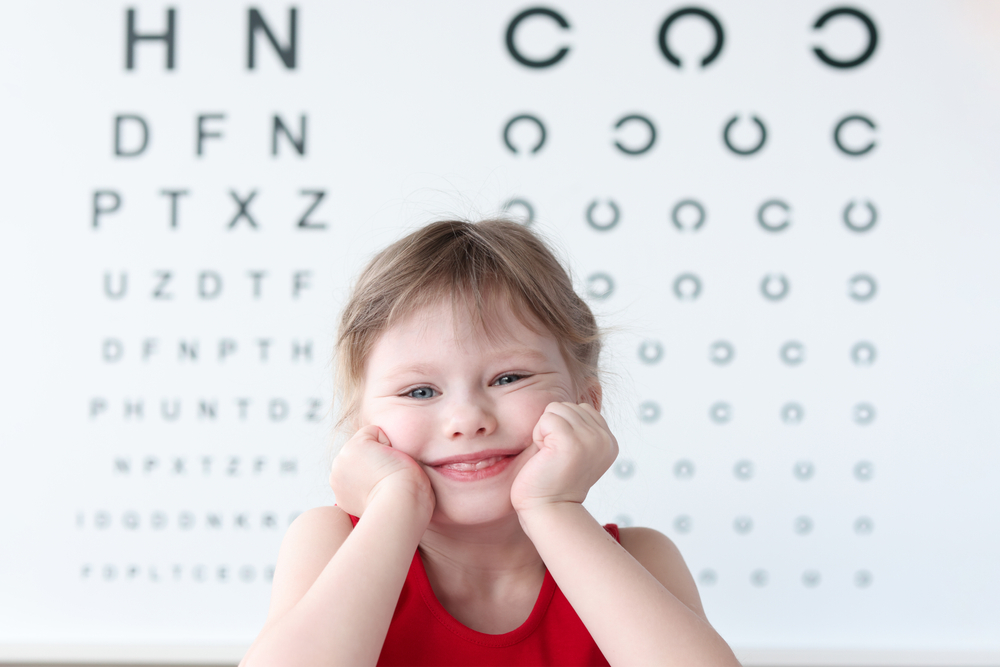The Importance of Early Detection in Myopia Management
Blog:The Importance of Early Detection in Myopia Management

As a parent, you want the best for your child's overall health and well-being, including their vision. One eye condition that has been on the rise in recent years is myopia, also known as nearsightedness. Understanding the significance of early detection and effective management strategies can play a crucial role in safeguarding your child's visual development and long-term eye health.
What Is Myopia and How Does It Affect Children?
Myopia is a refractive error in the eye that causes distant objects to appear blurry, while nearby objects remain clear. This condition typically develops during childhood and can progress rapidly, leading to increased nearsightedness over time. As a child's eyes grow, the eyeball may become longer than normal, causing light to focus in front of the retina instead of directly on it.
The impact of myopia on children's vision can be significant. Children with untreated or unmanaged myopia may struggle with activities that require clear distance vision, such as reading the blackboard, participating in sports, or enjoying outdoor activities. Additionally, high levels of myopia in children can increase the risk of developing sight-threatening complications later in life, including retinal detachment, glaucoma, and cataracts.
Recognizing the Signs of Myopia in Children
Recognizing the signs and symptoms of myopia in children is crucial for early detection and intervention. Some common indicators of myopia include:
Squinting or Difficulty Seeing Distant Objects: Your child may squint or struggle to see clearly when looking at objects or people across the room.
Frequent Headaches or Eye Strain: Myopia can cause eye strain and headaches, particularly after prolonged periods of close-up work, such as reading or using digital devices.
Sitting Closer to the TV or Computer Screen: Children with myopia may unconsciously move closer to the screen to see it more clearly.
Covering One Eye When Trying to Focus: This behavior may be a subconscious attempt to reduce the blurriness and improve visual clarity.
The Importance of Regular Pediatric Eye Exams for Early Detection of Myopia
Regular pediatric eye exams are crucial for the early detection and management of myopia in children. The American Optometric Association recommends that children have their first comprehensive eye exam at 6 months of age, followed by additional exams at 3 years old and 5-6 years old. After that, children should have annual eye exams to monitor their vision development and identify any refractive errors or other eye health issues.
During these eye exams, your child's optometrist will assess their visual acuity, eye alignment, and overall eye health. They may also use specialized tests and equipment to measure the curvature and length of the eyeball, which can help detect the early stages of myopia. By catching myopia early, your child's optometrist can implement effective management strategies to slow the progression of the condition and protect their long-term vision.
The Role of Myopia Management in Children's Eye Health
Myopia management is a critical component of children's eye health. Once myopia is detected, your child's eye doctor can develop a personalized treatment plan to slow the progression of the condition and reduce the risk of associated complications. Some of the key roles of myopia management include:
Slowing the Progression of Myopia: Effective myopia management strategies, such as specialized contact lenses or eye drops, can help slow the elongation of the eyeball and the worsening of nearsightedness.
Preserving Distance Vision: By managing myopia, your child can maintain clearer distance vision, which is essential for academic, social, and recreational activities.
Reducing the Risk of Sight-Threatening Complications: Controlling myopia progression can lower the likelihood of developing serious eye health issues later in life, such as retinal detachment, glaucoma, and cataracts.
Improving Overall Quality of Life: Successful myopia management can enhance your child's visual abilities, boost their confidence, and support their overall well-being and development.
Effective Methods for Myopia Management
One effective method is Orthokeratology (Ortho-K), which involves wearing specially designed gas-permeable contact lenses overnight. These lenses gently reshape the cornea, temporarily correcting myopia and allowing clear vision during the day without the need for glasses or contact lenses. Studies have shown that Ortho-K can significantly slow the progression of myopia, making it an appealing option for active children.
MiSight soft contact lenses are another innovative approach to myopia management. These daily disposable lenses have a unique dual-focus design that not only corrects the refractive error but also reduces the eye's tendency to elongate, which is a key factor in myopia progression. Clinical trials have demonstrated that MiSight lenses can slow myopia progression by up to 59% compared to standard single-vision lenses, offering a convenient and effective option for young patients who prefer daytime lens wear.
Atropine eye drops are a pharmacological method used to manage myopia. Low-dose atropine drops are typically applied once daily and have been shown to slow the progression of myopia in children by relaxing the eye's focusing mechanism.
It's important to work closely with your optometrist to determine the most suitable myopia management approach based on your child's individual needs and the stage of their myopia development.
Schedule Your Child’s Eye Exam with Swan City Eye Care Today
The early detection and effective management of myopia in children are crucial for preserving their visual health and development. By understanding the signs and symptoms of myopia, scheduling regular pediatric eye exams, and implementing proven myopia management strategies, you can take proactive steps to protect your child's vision and set them up for long-term eye health.
Schedule a comprehensive eye exam for your child with Swan City Eye Care. Dr. Garibay will develop a personalized myopia management plan that addresses your child's unique needs and preserves their vision for years to come. Visit our office in Lakeland, Florida, or call (863) 323-7525 to book an appointment today.




